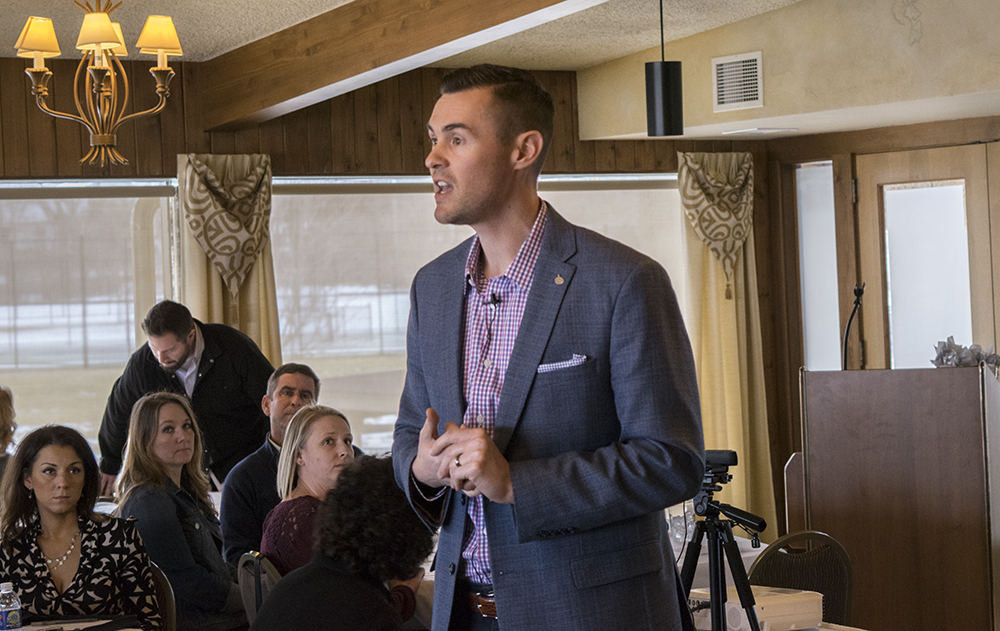
I hate making dumb decisions.
Or, if I’m being honest, I hate that someone might think my decision is dumb.
So I ask myself,
“Am I certain this is the right move?”
Then I wait.
I do nothing (or instead, I keep doing what I’ve always done), telling myself that when the moment is right, I’ll be certain and make the move.
Will my work have the same impact if I make a dumb decision? Will people no longer respect me? Will my career be over?
The question of certainty paralyzes me. But I have a new paradigm now. I’m searching for peak performance in all aspects of my life.
If you’re already, subscribe to follow my peak performance journey:
***********************************************INSERT EMAIL OPT-IN BAR************************************
Anything that paralyzes cannot work in a framework of peak performance.
Mental paralysis, in the form of inaction, creates pain.
Pain in the form of:
Regret — to feel sad, repentant, or disappointed over (something that has happened or been done, especially a loss or missed opportunity).
Doubt — to feel uncertain.
Resentment — to feel bitterness or indignation at (a circumstance, action, or person).
Regret that I haven’t taken action.
Doubt that I ever will.
Resentment towards those who have.
So I do nothing, and the cycle starts again.
The Spotlight Effect
People commonly believe that the “social spotlight” shines more brightly on them than it actually does, a phenomenon researchers1 have dubbed the spotlight effect.
This is our ego at work.
This is because of a phenomenon related to the spotlight effect, known as the self-as-target bias, or the sense that actions or events are disproportionately directed toward the self2
We believe other people think as much about our lives as we do.
They do not.
You awkwardly fumble through a presentation at work, stumble during a workout at the gym, or have a “bad hair day” — each may seem shameful and unforgettable to us. Still, multiple research studies have shown these events often go unnoticed by those around you.
In truth, we’re just thinking about ourselves all day long.
So much so that we rarely take the time to notice all the stupid shit other people do.
Regrets result from a reluctance to seize an opportunity because of a fear of failure and the social judgment it might bring.
Step one to overcoming decision paralysis is understanding this is our ego working against us.
No one cares when you make a mistake (and as research suggests, very few people are even aware of your failures), so neither should you.
“Ego is the enemy of what you want and of what you have: Of mastering a craft. Of real creative insight. Of working well with others. Of building loyalty and support. Of longevity. Of repeating and retaining your success. It repulses advantages and opportunities. It’s a magnet for enemies and errors.”
~ Ryan Holiday, Ego is the Enemy
READ NEXT: Professionals make mistakes.
The Certainty Effect
Decision-makers have a strong tendency to consider their problems unique.
They isolate the current choice from future opportunities.
Overly cautious attitudes to risk result from failing to appreciate statistical aggregation’s effects in mitigating relative risk.3
This yields two conflicting errors in decision-making:
An expectation of future outcomes is based on isolated incidents anchored in the individual’s own experiences; and overly optimistic forecasts.
Risk evaluations are based on the perceived uniqueness of decisions without examining the full range of possibilities; and overly pessimistic forecasts.
We treat probabilities as nonlinear: Overweighting small probabilities and underweighting large probabilities).
We also heavily overweight “certain” outcomes (0% and 100% chance), more so than uncertain outcomes (any other probability between 0% and 100%).
This phenomenon has been coined the “Certainty Effect.”
According to researchers4, the “Certainty Effect,” in the domain of gains, because people overweight certainty and gains are desirable outcomes, overweighting a sure gain leads people to choose it over a risky gain.
Conversely, in the domain of losses, because people overweight certainty and losses are unattractive outcomes, overweighting a sure loss leads people not to choose it over a risky loss.
The “Certainty Effect” predicts risk aversion in gains and risk seeking in losses when there is a choice between a sure and a risky option.
This means we’re much more likely to make a risky decision when faced with a sure loss than a sure gain.
Step two to overcoming decision paralysis is dismissing our natural bias to overweigh certain outcomes for our perceived unique problems.
Once you realize no one is paying attention (especially to small decisions) and certainty (with big decisions) is impossible, you’re free to kickass.
Now go, kickass!
Yours in insurance,
Hanley
The Ryan Hanley newsletter is only one of the ways we can connect.
Here are a few more…
Instagram and Twitter are where I share little ditties and short thoughts on peak performance and personal development that may not make it into the newsletter.
If you enjoy our content, the best way to support my work is by referring the newsletter to your friends and colleagues.
Click the link below to learn how to get this complete 🔥🔥🔥 t-shirt…
I know, right?
Fire.




© Copyright 2025 Finding Peak LCC
All rights reserved.